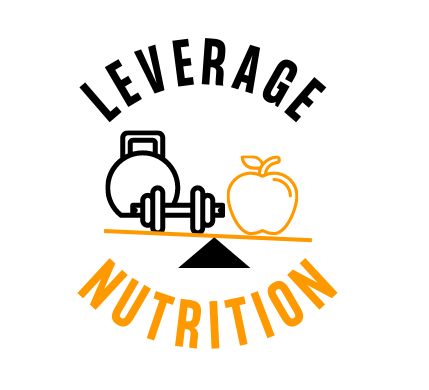
For those looking to build muscle or maximize sports performance, you often need more calories than you’re currently consuming. Especially if you’re highly active.
If you’re not getting enough calories, you’re not maximally: building muscle, recovering, or performing in your sport.
Below are some tips to help increase your calories:
1. Liquid Calories
A great way to add quality calories to the diet is through the addition of milk and/or juice, instead of water/calorieless drinks (eg. like diet pop).
Example:
- Add a glass of milk to breakfast and an afternoon snack
Smoothies work well too, since fluid is less filling than solids and you’ll be able to comfortably eat more.
2. Healthy Fats
At 9 calories per gram, fat is the most dense calorie macronutrient (protein and carbohydrates are only 4 calories per gram). The addition of small amounts of oils and nuts will make a big impact.
Here are some common recommendations we make to clients:
- Add a handful of nuts (pecans, cashews, almonds, walnuts, etc.) or seeds (sunflower, pumpkin, etc.) to your morning and/or afternoon snack; can also add these to salads.
- Add extra tablespoon(s) olive oil to your salads; you can also do this with rice and pasta
- Liberally use nut butter spreads, like peanut butter, where possible – like peanut butter and toast, peanut butter with apple slices, or adding nut butters to oatmeals
- Add chia, flax, or hemp seeds to smoothies or oatmeals
- Add avocado spreads to sandwiches
- Have hummus with vegetable sticks as calorie dense and healthy snack
- Higher fat % milks
- Introduce / increase serving sizes of cheeses
3. Increase Meal Frequency
If you’re eating more frequently it is easer to eat more food, and will help you from feeling too full at any one meal. Further, once you get into the habit of eating on a regular structure you’ll start to get hungry at these regular time intervals – for example, if you’re not typically hungry at breakfast, you’ll start to once you gradually introduce eating at that time.
4. Dried Fruit
Dried fruit is less filling than whole fruit, and are a great snack. Raisans have have 290 calories for 100g, compared to 80 calories for 100g of grapes. Similarly, dried apricots have 220 calories for 100g while whole fruit apricots are 44 calories per 100g.
5. Be mindful of protein and fibre intake
Both protein and fibre are very filling, so by eating more of each might make you too full to consume enough calories. Get the necessary amount of each, then look to fill the rest of your diet with healthy fats and healthy carbs (sweet potato, baked potato, rice, pasta, beans, quinoa, etc).
6. Higher Fat Meats
Choosing higher fat meats will subtly help you increase calories. Instead of having leaner cuts, like chicken breast, try chicken or turkey thighs/legs. Try having a pot roast, short ribs, and moderate intake of processed meats like salami and sausage.
Hope the above tips were helpful. If you need help with your nutrition, click here to fill out a client interest from.
Till next time,
-Mike
